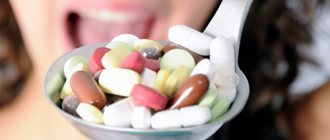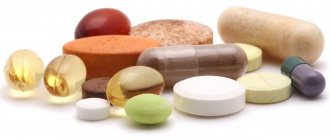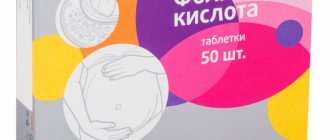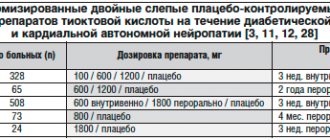Aspirin is a popular drug in the category of non-steroidal anti-inflammatory drugs. It is also used for the prevention of diseases of the cardiovascular system. There is one persistent myth that aspirin thins the blood and is indicated for the prevention of cardiovascular diseases. However, this is not entirely true. Aspirin affects blood clotting and, as a result, the process of thrombus formation. But the thickness of the blood is affected by the amount of hemoglobin and red blood cells. The lower their value, the more liquid the blood in the body.
In this article we will consider in detail the drug aspirin cardio. How does it differ from the usual simple aspirin, what effect does it have on the body and cardiac activity in particular.
Medicine aspirin cardio
In addition to the fact that the drug belongs to the category of NSAIDs and has an antipyretic effect and analgesic effect, aspirin cardio is used in the primary prevention of diseases of the cardiovascular system and in the secondary prevention of myocardial infarction. Reduces the risk of developing the disease with unstable angina. The drug is prescribed for cardiovascular pathologies due to its antithrombotic effect.
The main difference between the drug and regular aspirin is that aspirin cardio is coated with a special enteric coating. Due to this, it is used for long courses in cardiology. This coating allows the active substance to be released in the intestines, thereby minimizing one of the main side effects of aspirin - damage to the gastric mucosa.
Composition of the drug
The active ingredient of the drug is acetylsalicylic acid.
Excipients include corn starch and cellulose powder.
The enteric coating contains polysorbate, sodium lauryl sulfate, talc and other compounds.
Thus, when prescribing the drug, individual intolerance to the components of the composition should be taken into account.
Release form and dosage
The drug aspirin cardio is available only in the form of enteric-coated tablets in dosages of 100 mg and 300 mg.
The number of tablets in a package can be: 20 pcs., 28 pcs., 56 pcs.
Side effects
Side effects of acetylsalicylic acid include:
- dyspeptic symptoms: nausea, cramps, epigastric discomfort, lack of appetite;
- noise in the ears and head, weakness, dizziness;
- allergic urticaria;
- in severe cases: Quincke's edema or anaphylactic shock.
Aspirin intoxication develops after exceeding the maximum dose. It manifests itself as increased side effects: hearing loss, dizziness, heartburn, dryness and an unpleasant taste in the mouth.
Indications for aspirin cardio
- Primary prevention of acute myocardial infarction, taking into account aggravating risks - hypertension, diabetes mellitus, obesity, smoking.
- Prevention after a heart attack.
- Stable and unstable angina (including suspicion of acute myocardial infarction).
- Prevention of stroke (including in patients with transient cerebrovascular accident).
- Prevention of cerebrovascular accidents.
- Prevention of thromboembolism after operations on blood vessels and arteries (bypass surgery, endarterectomy, angioplasty and stenting).
- Prevention of deep vein thrombosis and thromboembolism of the pulmonary artery and its branches (including long-term immobilization as a result of extensive surgery).
Methods of application
The method of administration and dosage regimen of the drug depend on its release form and other factors. The optimal dosage regimen is determined by a specialist based on specific indications. It is advisable to take aspirin cardio tablets orally before meals with plenty of liquid, preferably at the same time, once a day.
The duration of therapy is determined by the doctor. The usually recommended dose is 100 mg 1 time per day, but the approach to the dosage regimen is individual. Depending on the indications, it may increase to 300 mg/day.
Primary prevention of acute myocardial infarction in the presence of risk factors: 100 mg/day or 300 mg every other day.
- The recommended dosage for the prevention of recurrent infarction is 100-300 mg/day.
- For unstable angina, as well as the onset of myocardial infarction, the initial dose is 100-300 mg. In this case, the first tablet is chewed to speed up absorption. The drug should be taken as soon as possible at the slightest suspicion of danger. For a month after the attack, a maintenance dose of 200-300 mg/day is recommended. Further, all treatment recommendations are prescribed by a specialist based on the patient’s vital signs.
- Prevention of stroke and cerebrovascular accident: 100-300 mg/day.
- Prevention of thromboembolism after vascular surgery: 100-300 mg/day.
- Prevention of deep vein thrombosis and pulmonary embolism: 100-200 mg/day or 300 mg every other day.
The compliance of the dosage form of a particular drug with the indications for use and dosage regimen should be strictly observed.
Insidious pills
As the media wrote, scientists did not find evidence of a decrease in the number of heart attacks and strokes in those taking the medicine, but statistically determined that their risk of internal bleeding increased. “RG-Week” figured out what kind of research we are talking about, and whether the situation with an old and seemingly well-studied drug is really so serious.
The publications raised understandable concerns among many: firstly, aspirin is one of the most commonly prescribed medications used to reduce relapses of cardiovascular diseases, including in older people. Secondly, this is an over-the-counter medicine that can be freely purchased at pharmacies, and many people perceive it as an absolutely safe remedy for many ailments - we drink it for headaches, colds, and some even with a hangover.
As for the effect of acetylsalicylic acid on blood vessels, this drug reduces platelet aggregation (in other words, their ability to “stick together”, forming blood clots). Consequently, its use reduces the risk of blockage of blood vessels and disruption of the heart, brain, and other organs.
But there is also a flip side to the coin: the medicine increases the risk of bleeding, including in the gastrointestinal tract. Which, by the way, is stated in the instructions for its use.
An article with the results of the international ASPREE study, which was conducted by a group of scientists from Australia and the USA, was published in the September issue of The New England Journal of Medicine. Its short translation from English into Russian is what caused so much noise. The results of this study were also discussed at the recent European Congress of Cardiology. The work is representative: scientists summarized data on 19 thousand patients, whose average age was 74 years, and monitored them for about five years.
Half of the participants took a small dose of aspirin, the rest (control group) took a placebo. During observation, the incidence of cardiovascular diseases, including vascular accidents, was the same in both groups. But complications in the form of bleeding in the group that took the medicine were almost 1.5 times higher (361 and 265 cases, respectively, for a group of 9.5 thousand people).
So, does this mean that aspirin is still dangerous? “RG - Week” addressed this question to cardiologist Igor Zhirov.
Competently
Igor Zhirov, Professor of the Department of Cardiology of the Russian Medical Academy of Continuing Professional Education, Leading Researcher at the National Medical Research Center for Cardiology
— I can immediately say that the information “aspirin kills” is not true. Cardiologists are, of course, aware of this research. We did not see anything completely new that we did not know before in its results. Journalists, citing the ASPREE study in publications, did not pay attention to an essential detail: this study did not study cardiovascular mortality. The purpose of the study was different - to evaluate, among other things, the possibility of using aspirin for the prevention of Alzheimer's disease (senile dementia) in elderly patients. It turned out that adding aspirin to therapy for these patients did not reduce the risk of dementia. In other words, taking aspirin as a prophylactic against senile dementia is useless.
As for the conclusion about an increase in the number of bleedings, there are no discoveries here; this is a known risk, and any cardiologist should take it into account. It should be said that any drug that we prescribe and prescribe can cause side effects. And this statement fully applies to aspirin. This is not a “harmless” remedy at all. If we start giving aspirin to everyone, regardless of age, regardless of what concomitant diseases the patient has, then such indiscriminate prescription of the drug may do more harm than good.
But if we prescribe aspirin to patients with coronary heart disease, those who have suffered a myocardial infarction, patients with atherosclerosis of the peripheral arteries of the lower extremities (intermittent claudication) - in all these cases the benefit of the drug is beyond doubt.
Now the approach to the appointment is as follows. We must carefully weigh all the risks for a particular patient. See if he has a stomach ulcer or other diseases of the internal organs. Place on one scale
risk factors for cardiovascular disaster, on the other - the risk of complications of other diseases. And evaluate. And the decision must be individual for each patient.
As for the “home” use of aspirin - treating a cold or relieving a hangover, here aspirin is taken in a short course, a day or two. And in these cases, the risk of complications from the gastrointestinal tract is minimal. But when there is a need for long-term use of the drug, there really are risks, and the doctor must take them into account when prescribing.
Contraindications
Express contraindications include:
- allergy to the active substance and components of the drug,
- Gastrointestinal diseases, including erosions, ulcers in the acute stage,
- diseases of the bronchopulmonary system
- hemorrhagic diathesis,
- pregnancy and lactation (the 1st and 3rd trimesters are considered especially dangerous)
- aortic aneurysm
- renal or liver failure
- and children under 15 years of age.
How much aspirin to take for a hangover?
The drug must be taken according to the instructions included with any pharmaceutical product or as prescribed by a doctor. Experts recommend taking 0.3-0.5 g the day before the upcoming holiday. The medication should be taken again after 10-12 hours in the optimal amount of 0.5 g. Doctors recommend combining the medication with a diet that minimizes the content of white products. This will help reduce the load on the liver and relieve the feeling of heaviness. Before taking the drug, you must familiarize yourself with all possible contraindications indicated in the instructions.
Special Recommendations
Aspirin cardio and chronic diseases
Particular caution should be exercised when taking aspirin for persons suffering from diseases of the respiratory system. The fact is that taking aspirin causes a narrowing of the bronchi, which can cause so-called aspirin asthma, or provoke asthma, which is in remission.
Aspirin cardio and childhood
When taken in its pure form in children, due to their young age, the concentration of glucose in the plasma can sharply decrease, in parallel with this, the level of ketone bodies in the blood increases, plasma acidification occurs, and fatty acids accumulate in the liver. These metabolic disturbances lead to swelling of tissues and organs.
Children become more than just lethargic. Aggravating symptoms such as cramps, diarrhea, rapid breathing and palpitations may occur. Up to loss of consciousness and severe muscle hypotension. Such conditions in children can be life-threatening, so the drug is contraindicated for them.
Aspirin cardio and alcohol
The combined use of alcohol and aspirin is not recommended. Alcohol and alcohol-containing products are known for their vasodilating properties. But in combination with aspirin, the effect can be most unexpected. The risks of bleeding increase, including in diseases of the gastrointestinal tract, exacerbation of liver diseases or the occurrence of any acute symptoms associated with this organ.
Aspirin cardio and pregnancy
The active substance freely and easily penetrates the placental barrier, which can lead to negative consequences for the fetus.
When used in the first trimester, it leads to the development of a “cleft palate” (cleft palate); in the third trimester, it causes inhibition of labor, premature closure of the ductus arteriosus in the fetus, disruption of the functioning of the pulmonary vessels and hypertension in the pulmonary circulation.
Acetylsalicylic acid is also excreted in breast milk, which increases the risk of bleeding in the baby due to impaired platelet function. Therefore, the advisability of using the drug during pregnancy and lactation should be justified by the specialist making the decision on the prescription.
Properties of aspirin
The main reason for using aspirin after a hangover is to try to alleviate a person’s condition, which is aggravated after drinking too much alcohol. The anti-hangover pill aspirin can improve the condition, restore physical activity and relieve headaches. The effect of aspirin is to instantly affect the composition of the blood, which has a viscous form after drinking alcohol. It thins the blood, prevents the formation of clots and blood clots, stimulates blood flow and alleviates the general condition of a person. Aspirin promotes and restores processes in the body, relieves dehydration and weakness.







